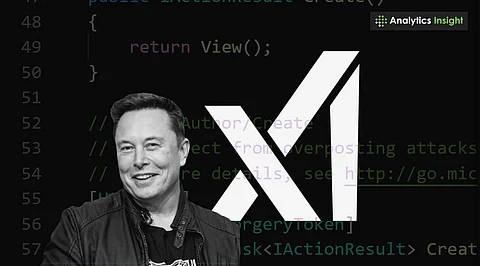

Elon Musk's startup, xAI, has confirmed the signing of the Safety and Security Chapter of the European Union AI Code of Practice, aligning a segment of the company with the EU's evolving artificial intelligence policies. However, the company refrains from endorsing other parts of the framework.
The Code of Practice is a non-binding guide for artificial intelligence regulation in Europe that broadly advocates for the three pillars of transparency, copyright, and safety. Developers of general-purpose artificial intelligence should adopt the entire code. Still, only developers of more advanced systems are urged to commit to the safety-specific chapter.
In a post shared on X (formerly Twitter), the company stated, "xAI supports AI safety and will be signing the EU AI Act's Code of Practice Chapter on Safety and Security. While the AI Act and the Code have a portion that promotes safety, their other parts contain requirements that are profoundly detrimental to innovation, and their copyright provisions are an overreach."
The company, founded by Elon Musk, never mentioned whether it would sign the chapters on transparency or copyright rules. This cautious approach reflects the debates among the various actors in the tech industry about how to best regulate powerful models without halting their innovative abilities.
While voluntary, the European Union guidelines are said to be the precursor to the legally binding EU AI Act, which will finally be implemented in the coming years.
The signing of the xAI Safety Chapter supposedly affords the Elon Musk enterprise recognition in an increasingly regulatory-driven environment like Europe. This selective approach gazes at the trade-off between the Great Balance, Compliance, and Innovations, as opposed to what U.S.-based companies have previously attempted.
The EU's AI Code of Practice is part of a larger movement to lead on artificial intelligence governance. As adoption surges globally, regulatory bodies attempt to establish norms without oversight before the technology becomes too deeply entrenched.
By joining the xAI Safety Chapter, Musk's company gains credibility in Europe's heavily regulated market. This more selective approach represents a strategic balance between compliance and innovation, unlike some previous efforts by U.S.-based companies.
As the regulation of AI in Europe evolves, the measured entry of xAI into the conversation says safety matters, but one cannot sacrifice innovation. This sends a signal to both regulators and competitors that the policies will be something that is negotiated and will not be defined by an unchanging rulebook.
